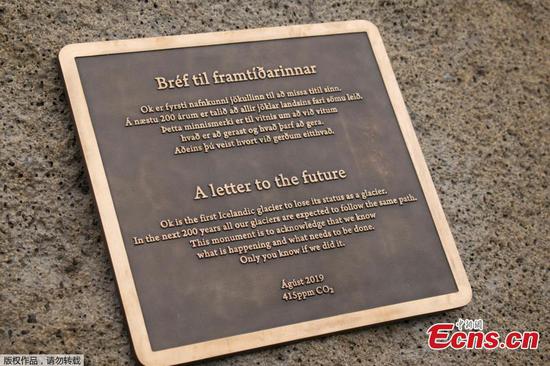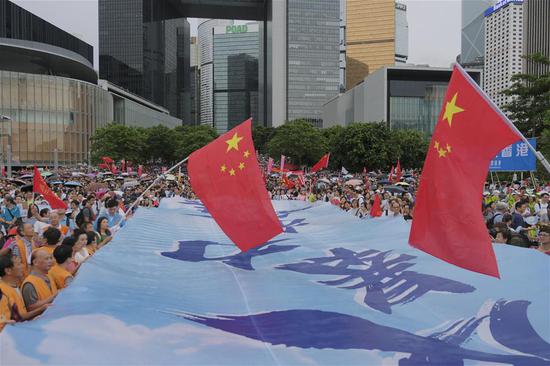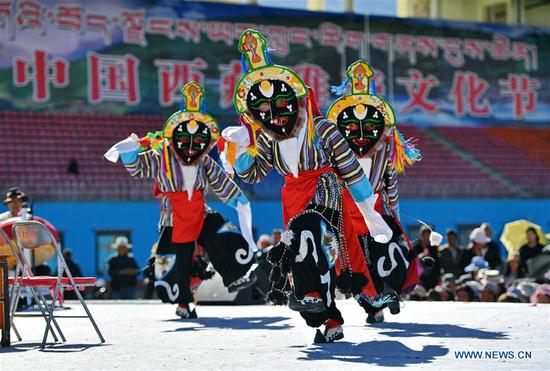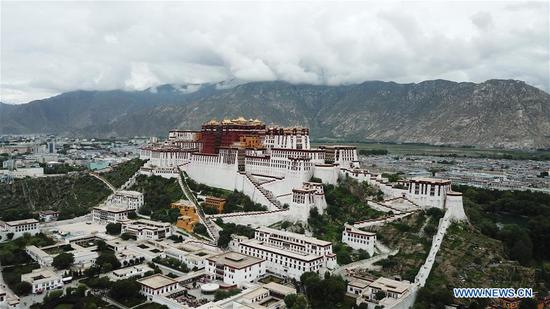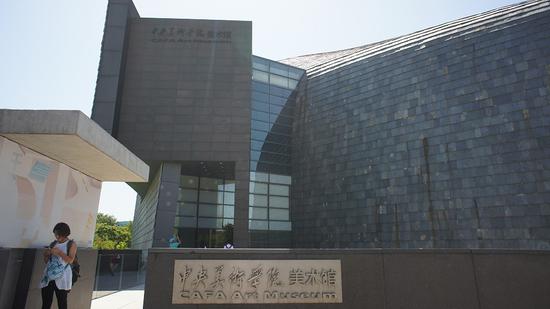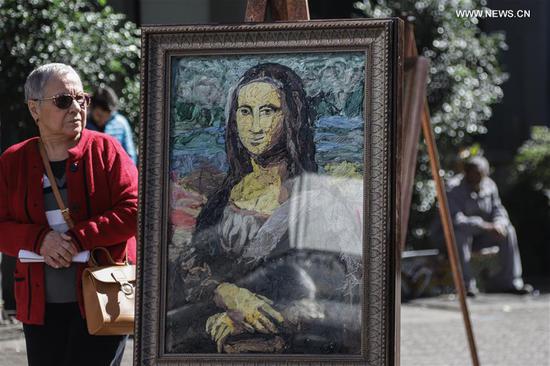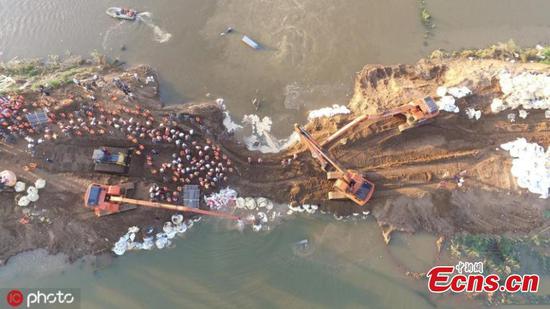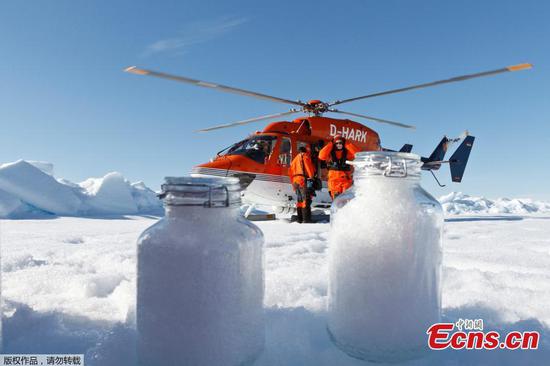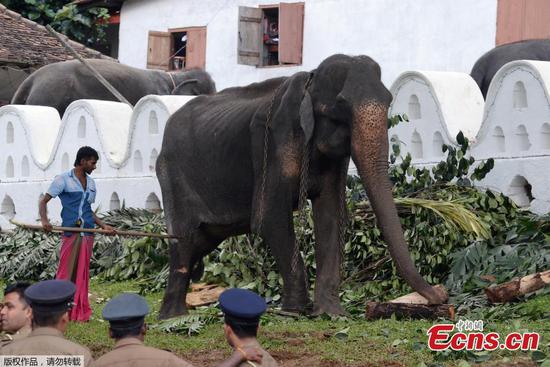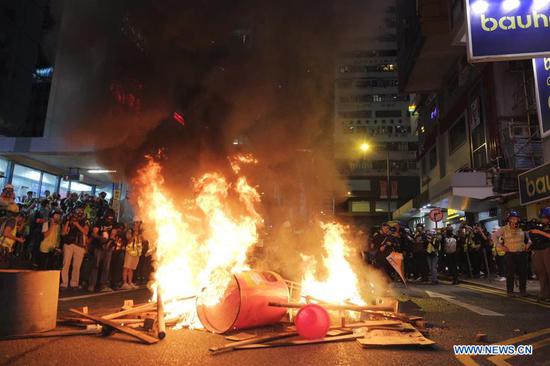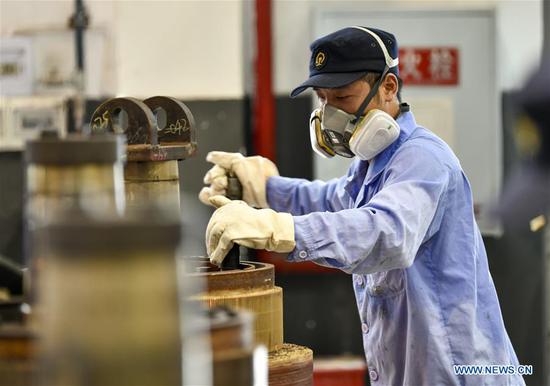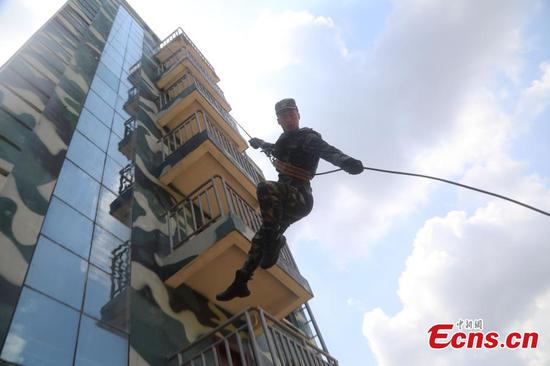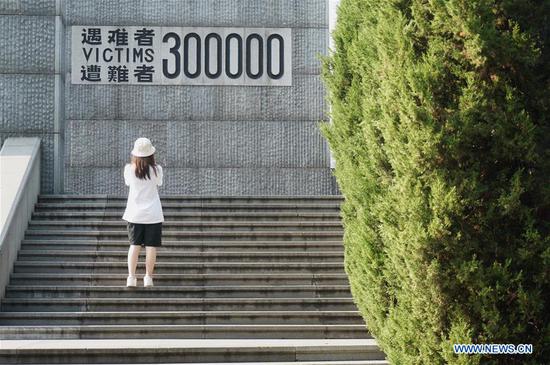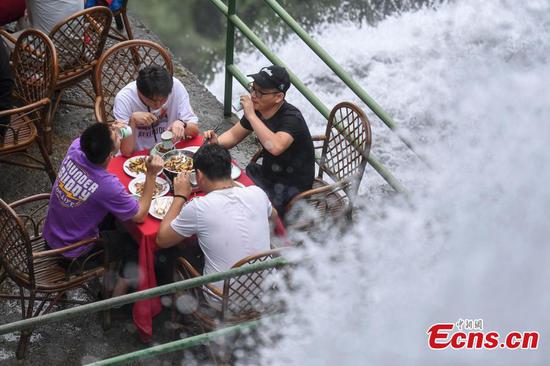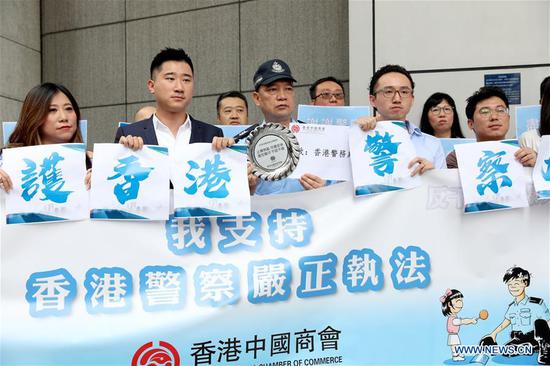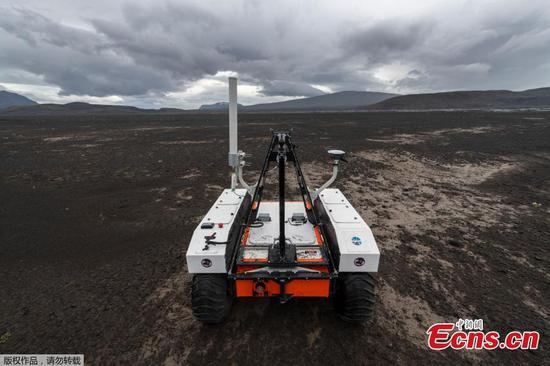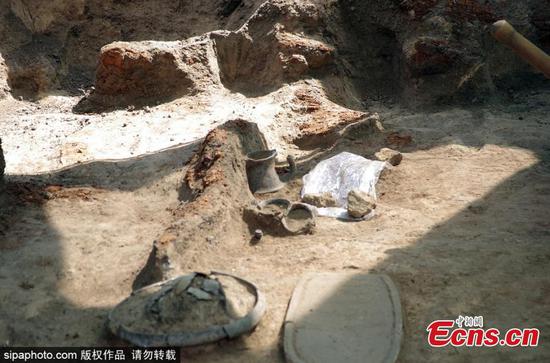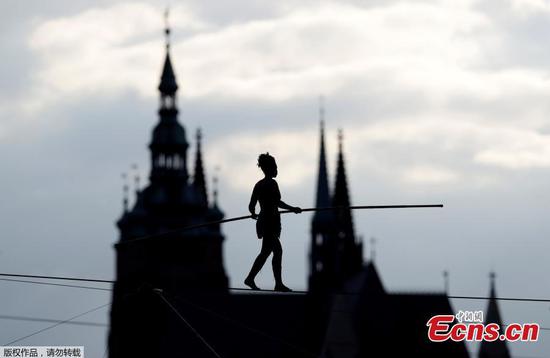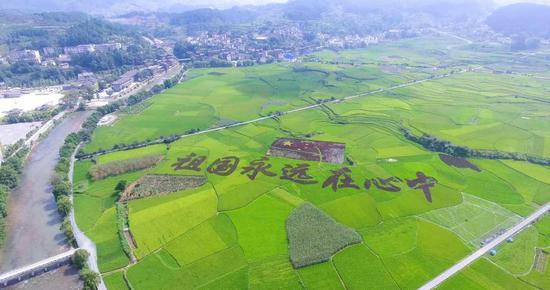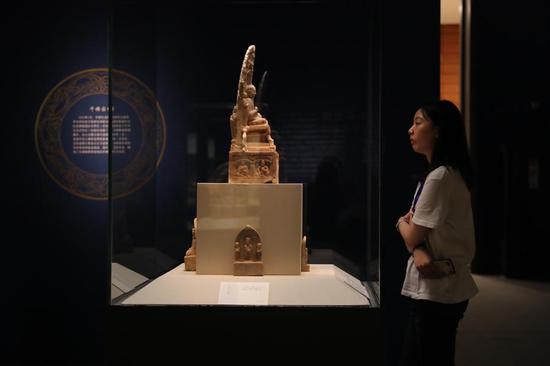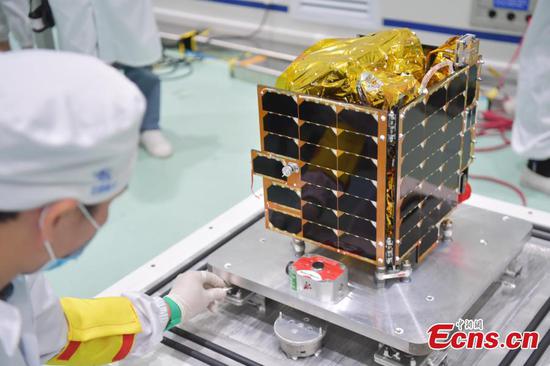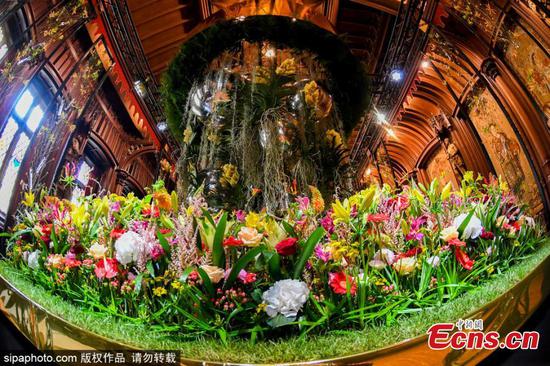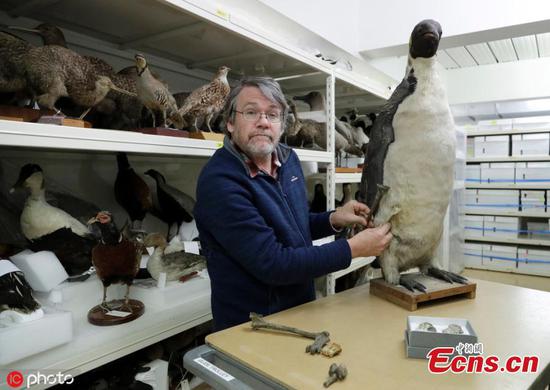
The white mini car, with a height of about 0.5 meters, was launched in Jiangbei New Area in Nanjing. [Photo/Xinhua]
An unmanned delivery car with 5G wireless technology hit the roads in the city of Nanjing, capital of East China's Jiangsu province over the weekend.
The white mini car, with a height of about 0.5 meters, was launched in Jiangbei New Area by Suning Logistics, a subsidiary of Chinese e-commerce giant Suning to support the company's smart retail service.
A customer surnamed Shi, placed an order over his mobile phone. Then, Sun Rongrong, a shop assistant at a convenience store of Suning, put the drinks Shi ordered in the unmanned car and created a password for the customer before the delivery.
Taking only five minutes, the 5G-assisted delivery car sent the drinks to Shi's company and sent a short message letting him know it had arrived. After Shi got his drinks, the car also issued a voice message to him: "Goodbye, remember to miss me!"
Ling Yunfei, director of Suning Logistics Group Logistics Research Institute, said the unmanned delivery car was upgraded on the basis of another such kind of car which was launched in April 2018.
The car's self-driving performance has been greatly improved, allowing it to pass traffic lights on its own and at a faster speed, with a normal average operating speed of 8 km/h, up to 15 km/h, according to Ling. It can also detect obstacles 100 meters away and avoid them, Ling added.
At the unmanned distribution monitoring center, a technician is responsible for checking the real-time status of the unmanned vehicle. When the vehicle encounters a problem or stops for a long time, the background platform will remind the technician to take over manually, Ling said.
"With the large bandwidth and low delay characteristics of 5G, we can manually drive the vehicle off the road and switch back to driverless mode after solving the problem," Ling said.
In the future, a monitoring center will be able to control hundreds of unmanned cars, connecting them with more complex scenarios such as elevators and entrance guards, according to Ling.











